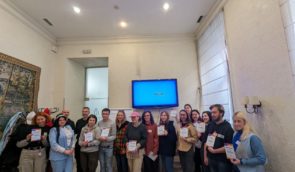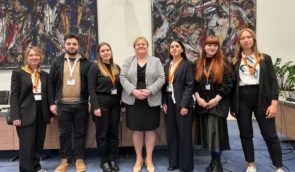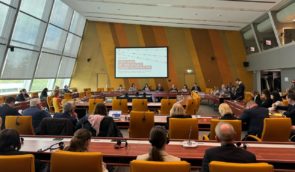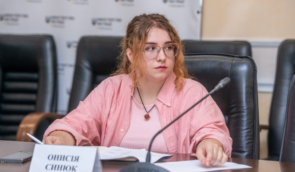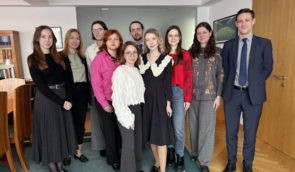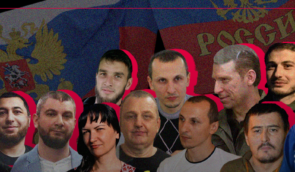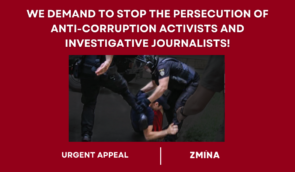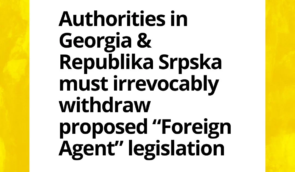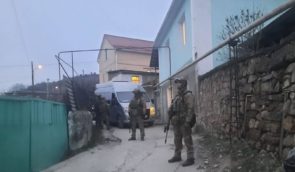Side-event on the human rights situation in Crimea held within the 75th session of the UN General Assembly
On November 3, on the sidelines of the 75th session of the UN General Assembly, New York, a side-event on the human rights situation in the temporarily occupied Autonomous Republic of Crimea and the city of Sevastopol, Ukraine, was held.
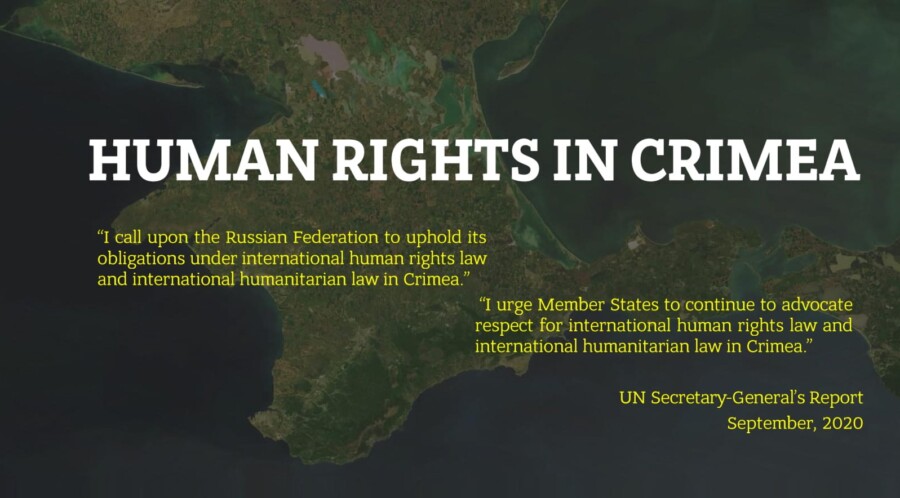
The online event brought together diplomats from Kyiv, New York, Geneva, Vienna and Strasbourg who deal with human rights issues.
In her opening remarks, First Deputy Foreign Minister of Ukraine Emine Dzhaparova stressed that the Russian occupation authorities have turned Crimea into a peninsula of fear, where repressions against Ukrainian citizens who oppose the occupation continue to take place.
In particular, the Occupying Power continues the policy of illegal detention of Ukrainians and Crimean Tatars in order to further transfer them as hostages to Russian jails. Just today, Russia’s South District Military Court unlawfully sentenced three citizens of Ukraine to imprisonment in another so-called “Hizb ut-Tahrir” case. “We will not leave our citizens and will do everything possible for their return to Ukraine,” Dzhaparova promised.
The Russian occupying authorities’ policy to change the demographic structure on the peninsula also does not go unnoticed by the international community. The First Deputy Minister expressed her conviction that the transfer of the Russian population to the territory of the occupied Crimea is illegal under international humanitarian law.
Deprivation of the right to land, religion, education and language, forced change of citizenship, conscription into the Russian army, ban on the activities of the Crimean Tatar Mejlis, and persecution of the Ukrainian Orthodox Church in Crimea – all these violations of human rights and international humanitarian law, according to Emine Dzhaparova, will receive a proper assessment from the United Nations.
Also participated in the event: Permanent Representative of the President of Ukraine to the Autonomous Republic of Crimea Anton Korynevych, Vice-Chairman of the Association of International Law of Ukraine Mykola Hnatovsky, Archbishop of the Crimean Diocese of the Orthodox Church of Ukraine Klyment, Chairman of the Human Rights Center ZMINA Tetiana Pechonchyk, Deputy Chairman of the Mejlis of Crimean Tatar people Nariman Dzhelial and Crimean Tatar citizen journalist Nariman Memedeminov.
In her speech, Tetiana Pechonchyk also touched upon the main trends of 2020 in the field of human rights. In particular, she spoke about the impact of the COVID-19 pandemic on social life, problems with moving to the mainland of Ukraine, education for Crimean children, the deteriorating situation in places of detention, the ongoing militarization of the peninsula, and the growing number of political prisoners. Among them she mentioned human rights activist, coordinator of the “Crimean Solidarity” Server Mustafayev, who was sentenced to 14 years in prison in September 2020.
Tetiana Pechonchyk also noted the importance of Ukraine’s efforts to establish the Crimean Platform and called on UN member states to join the work of this platform.
Participants also stressed the importance of two reports by the UN Secretary-General on the human rights situation in Crimea, which contained facts of large-scale attacks on human rights on the temporarily occupied peninsula and Russia’s failure to comply with its obligations under the international law.
‘Therefore, it is important to continue monitoring this issue by the Secretary General, which, in particular, is one of the key elements of the updated draft resolution of the UN General Assembly on the human rights situation in the temporarily occupied Crimea, which will be considered by the UN General Assembly in November-December this year’, Emine Dzhaparova said.
Information provided by the Ukrainian MFA

